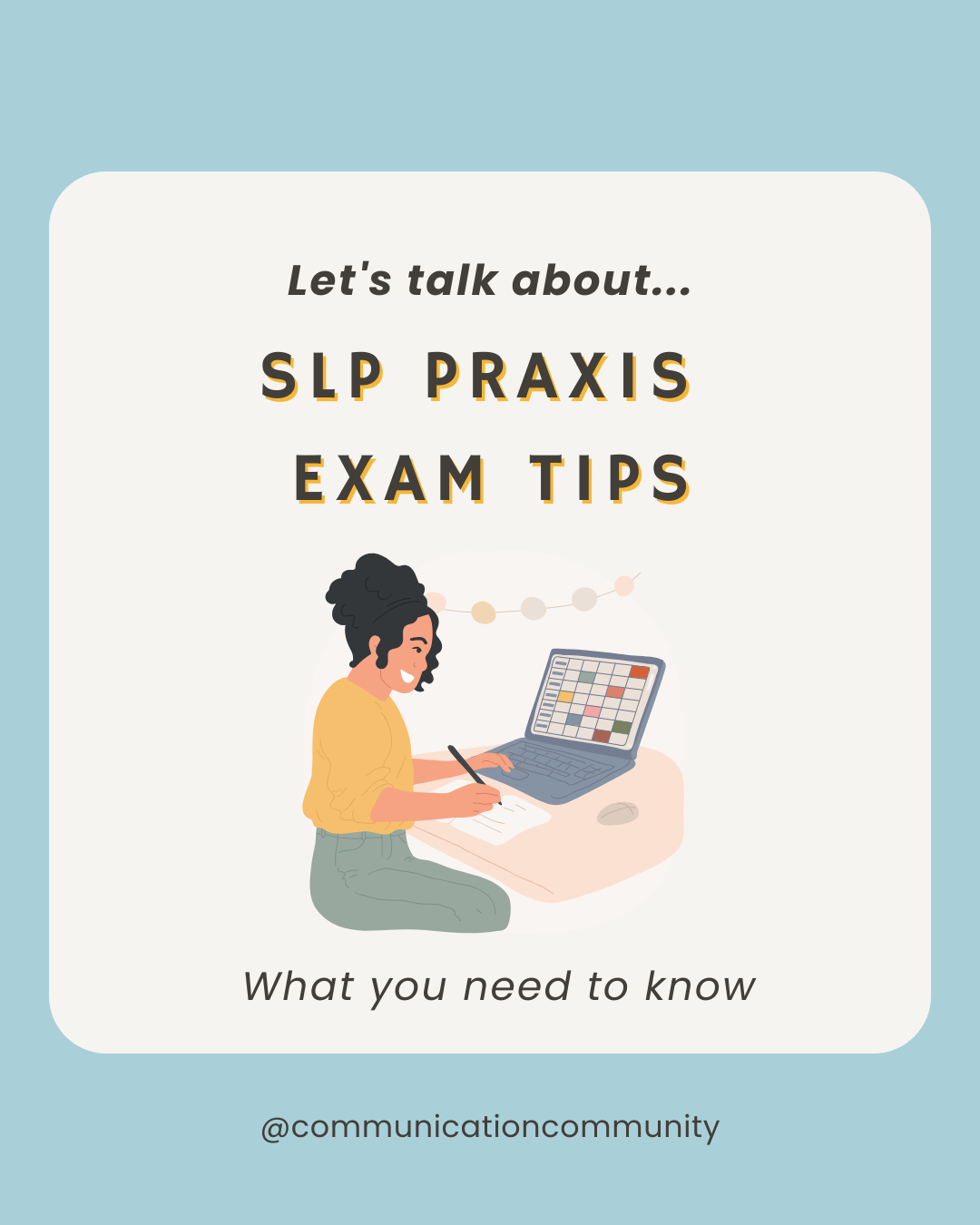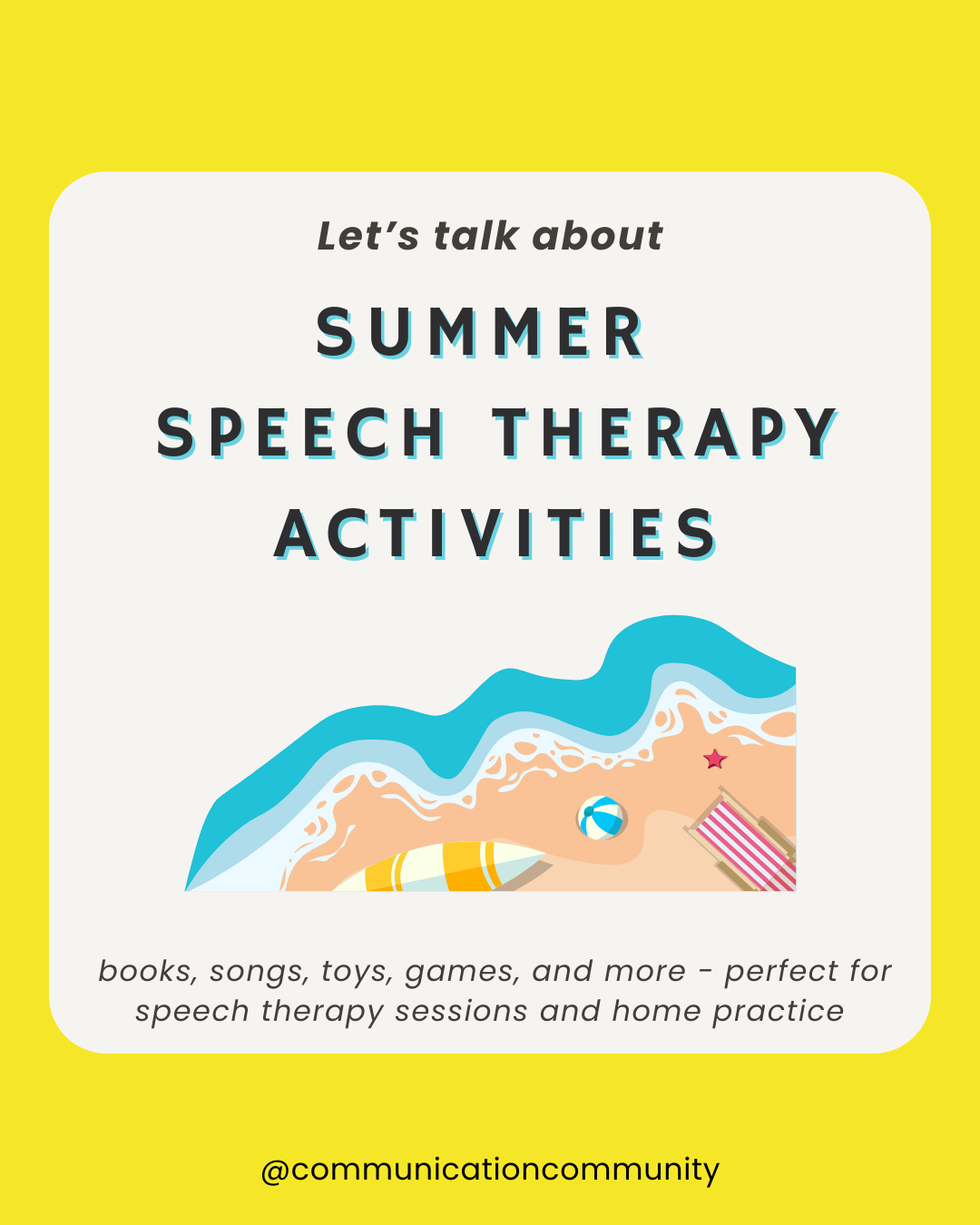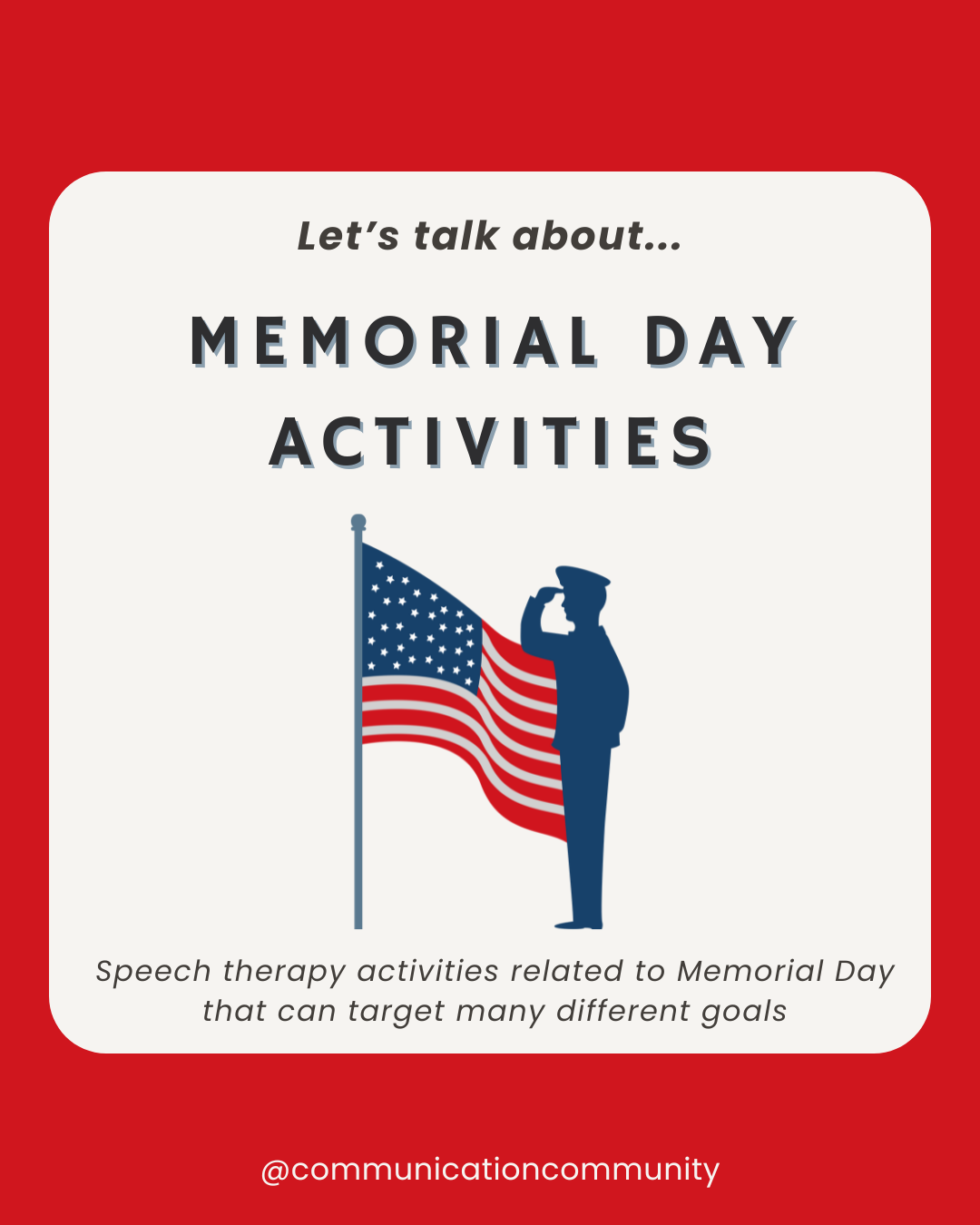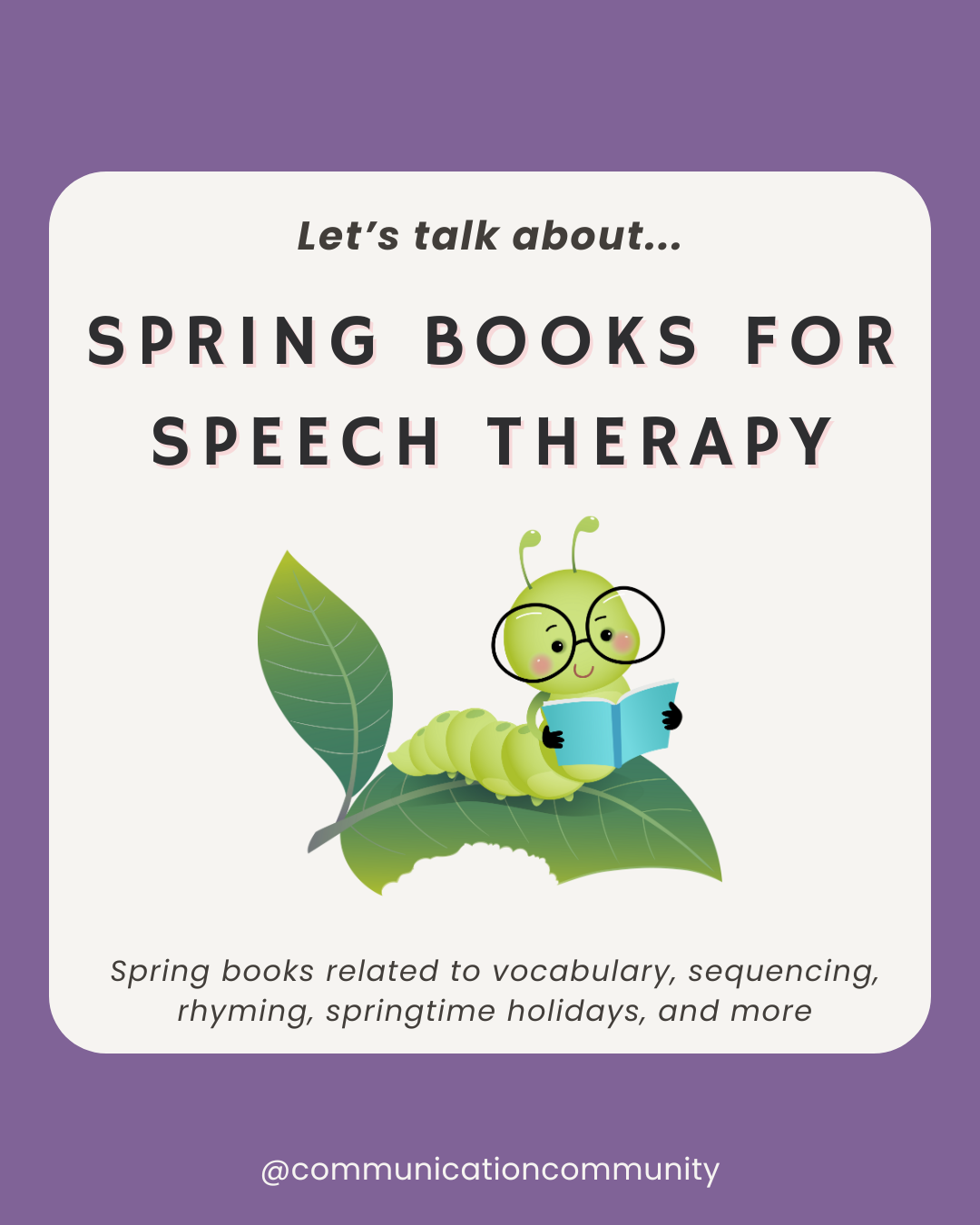What is Speech Therapy?
Speech therapy is an intervention that helps improve speech, language, and/or feeding and swallowing skills. It can take place in the home, in a hospital, in an outpatient clinic, in a school, and even in the community! The purpose of speech therapy is to improve an individual’s communication and/or feeding skills.
Speech therapy is provided by trained speech-language pathologists (SLPs). SLPs are individuals who have earned at least a Master’s degree in speech-language pathology. Speech-language pathology assistants (SLPAs) may also provide speech therapy under the supervision of an SLP.
The first step of speech therapy is having an evaluation completed. A referral for an evaluation may come from a child’s pediatrician. In some situations, a parent/caregiver may request an evaluation or their child’s educator could bring it up. Depending on the concerns, the SLP will complete interviews, observations, and formal and informal assessments. If they determine that the child may benefit from speech therapy services, they will develop goals, or things to work on, in speech therapy sessions.
Speech therapy sessions can vary a lot depending on the child’s needs. Below are reasons why a child may need speech therapy.
Speech Therapy Areas of Treatment
Speech Disorders:
- Articulation: Some children have trouble producing different speech sounds, such as “p,” “k,” or “s.” Children slowly learn how to produce certain sounds but if they are not able to produce them at an age that would be expected, speech therapy sessions may focus on this.
- Voice: If a child’s voice sounds hoarse, breathy, or has an unnatural pitch or volume, this could be a sign of a voice disorder. Voice disorders may be due to anatomical differences or unhealthy vocal behaviors (e.g. excessive yelling).
- Fluency: Children may have disfluencies in their speech, which sounds like stuttering. Many children naturally outgrow stuttering but not all. SLPs can help children learn about stuttering and teach them ways to talk more easily. SLPs can also help children who clutter.
Language Disorders:
- Most children start babbling before they turn one, speak their first word around age one, and speak 50+ different words by the time they turn two. If a child is not speaking as much as expected and is behind on developmental milestones, SLPs can work with them to increase the number of words they speak.
Swallowing/Feeding Disorders:
- Some children may have difficulties eating or swallowing. This can be caused by a variety of reasons and it can impact their health. Speech therapy may be helpful in finding effective ways for children to eat and swallow safely.
Augmentative and Alternative Communication (AAC):
- Children with complex communication needs (CCNs) can have difficulty effectively communicating through spoken language. Individuals who are autistic or have developmental disorders may benefit from AAC systems. If a child has CCNs, an SLP may introduce different types of AAC systems to them and teach them how to communicate using AAC.
Why Would a Child Need Speech Therapy?
It is not always possible to nail down a specific reason why a child may need speech therapy. Many children who receive speech therapy only need it for a short period of time. However, there are some situations where a child may be more likely to need speech therapy at some point.
These may include:
- Genetic or chromosomal disorder (e.g. Down syndrome, Fragile X syndrome)
- Neurological disorder (e.g. cerebral palsy)
- Autism Spectrum Disorder
- Hearing impairment
- Cleft lip and/or palate
- Brain injury
Questions to Ask a Speech-Language Pathologist
If your child starts receiving speech therapy services, you may (understandably) have a lot of questions. You may also not know where to start. Here are some questions you could ask:
- What are my child’s speech/language/feeding/swallowing strengths and challenges?
- What are you going to work on in speech therapy?
- How often will they receive speech therapy?
- About how long will they need speech therapy?
- What can I do to support them?
What Happens in Speech Therapy Sessions
Depending on the needs of the child, speech therapy sessions can vary a lot. For young children, sessions are often play-based and take place while the child is playing or engaging in an activity they enjoy.
Speech Therapy for Articulation: The SLP will likely target specific sounds or words that the child has difficulty saying. They may emphasize these sounds as they play with the child and encourage them to say the sound as well. For example, if the child needs support saying the “g” sound, the SLP may say a lot of words with “g,” such as “go,” “dog,” “goat,” “girl,” and “give.”
Speech Therapy for Language: The SLP can work on receptive language skills, which means the language a child understands. They may ask questions like, “Where is the dog?” or give simple directions such as, “Give me the doll.” The SLP can also work on expressive language skills, which means the language a child uses. They may ask the child which toy they want to play with or encourage (not force) them to label things they see.
Speech Therapy for Feeding/Swallowing: The SLP may try to find different positions or modifications that can help an infant or child feed safely. They may adjust the nipple size of bottles or thicken liquids to reduce the risk of aspiration (when food/liquids go into the lungs).
What is Early Intervention?
Early Intervention (EI) is the service offered to individuals birth to three years old (0 to 36 months) who are diagnosed with developmental delays and/or disabilities or are considered at risk for them. This may include individuals who may not be walking or talking when it would be expected for their age.
EI focuses on decreasing the effects of a delay or disability so children and families have the tools to increase success as they grow and participate in their daily living activities. EI services include speech therapy - among other disciplines!
An SLP’s Perspective on Speech Therapy
If you have concerns about your child’s speech, language, or swallowing skills, we encourage you to reach out to your child’s pediatrician! They can connect you to an SLP. Having speech therapy is not a “bad” thing - a significant percentage of children receive speech therapy at some point. Even if your child does not need speech therapy services, an SLP can provide helpful tips for you or things to look out for so you are able to support your child in the best way possible!
Have more questions? Send us an email at hello@communicationcommunity.com.
Additional Resources
For Parents/Caregivers:
- 8 ways to help your toddler talk
- Our favorite children's books for speech and language
- Our favorite toys for speech and language
- AAC tips for parents
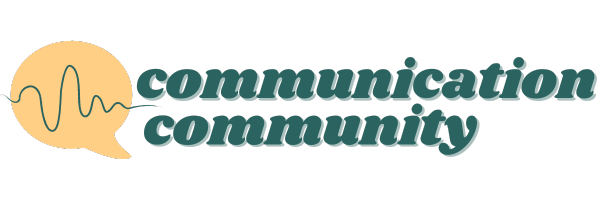
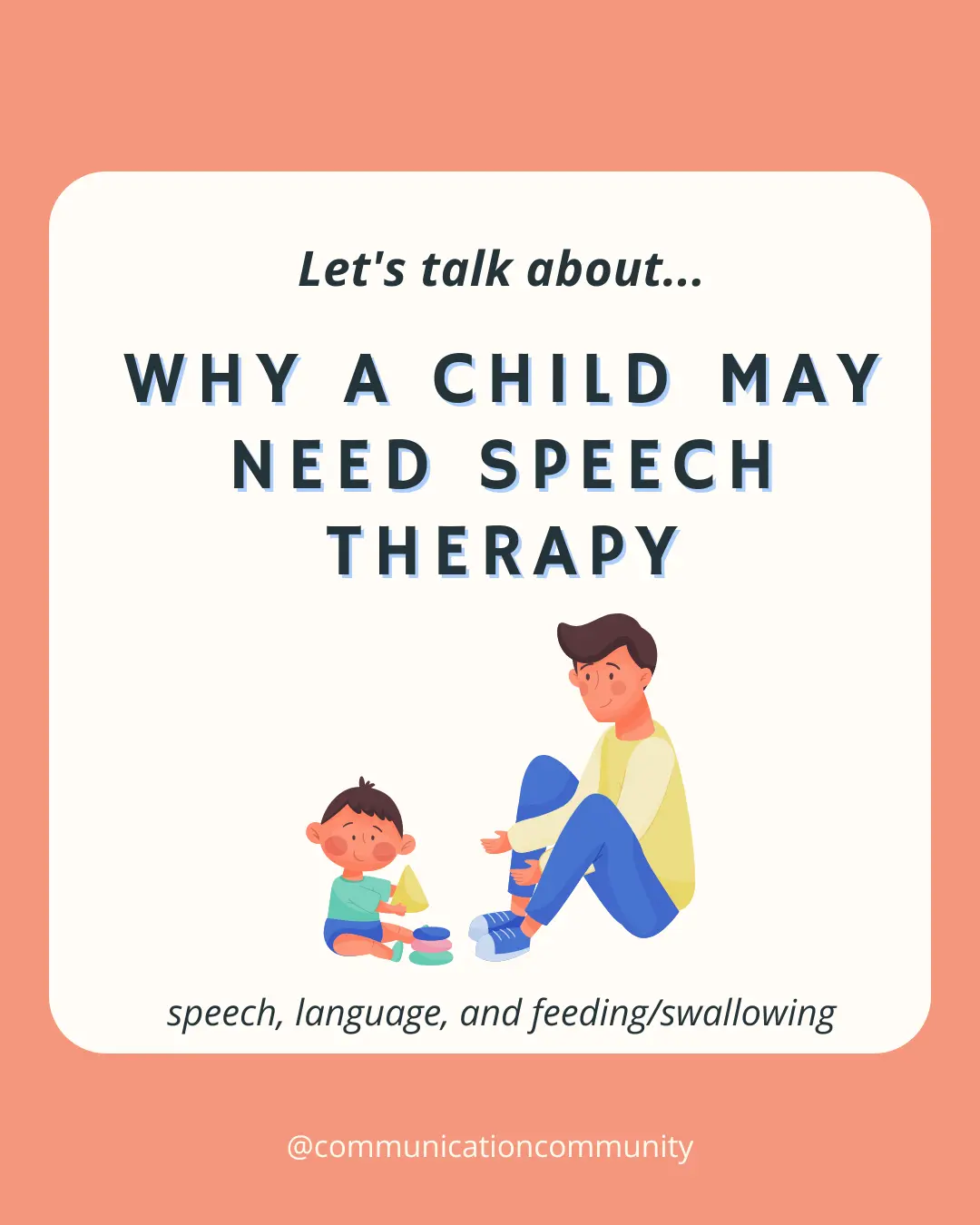
![How to Write Apraxia Goals [with goal bank]](https://www.communicationcommunity.com/content/images/2024/07/Apraxia-Goals--1-.png)
